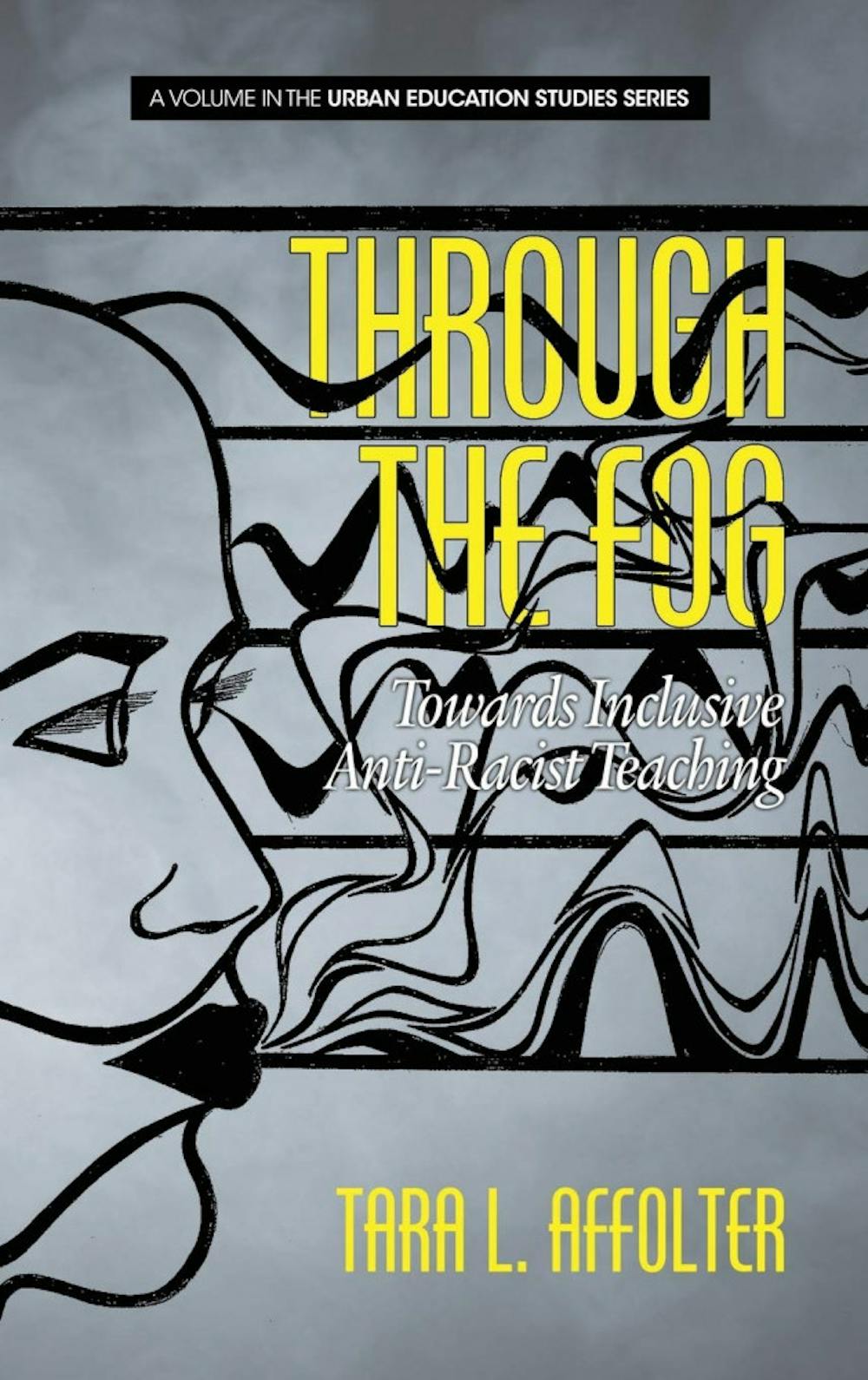“Let’s do this,” said Tara Affolter, professor of education studies, as she hopped up on the stage and strode to the podium to speak about her new book, “Through the Fog: Towards Inclusive Anti-Racist Teaching.” During her March 3 talk in Dana Auditorium, Affolter posed a question whose answer she has devoted her life’s work to changing: Who gets to be a child or a teenager in this country?
Affolter began by reading the opening of her book, which details her initial reaction to the acquittal of George Zimmerman after the murder of Trayvon Martin. Zimmerman, a mixed-race neighborhood watch coordinator, fatally shot Martin, an African-American 17-year-old student, in 2012.
“I remember staring at his [Trayvon’s] picture and thinking how young he was and how easily that could’ve been my son,” said Affolter, a white mother to a black son. She went on to list other instances of police violence against black bodies — Michael Brown, Sandra Bland, Tamir Rice — characterizing these people not as thugs or saints, but as young people trying to learn and live in a world that often attempts to belittle and erase them.
Affolter aims to equip Middlebury students with the tools needed to thoroughly identify and dismantle inequities, particularly in schools. Her research and teaching experience cover themes of social justice education such as antiracist teaching, culturally relevant pedagogy, disability studies and Critical Race Theory.
Her book emphasizes the importance of inclusive anti-racist pedagogy, centering on race without excluding other forms of oppression. She hopes the book will “disrupt the massive miseducation most students in the U.S. have received around race and racism.”
Affolter said the idea of inclusive education centers around making all learners’ experiences with schooling welcoming and participatory. It is rooted in aspirations for democratic and socially-just education, and is fundamentally concerned with interrogating cultural practices of schooling.
“Inclusive anti-racist teaching should be core to all work in all education settings,” Affolter said.
She emphasized that inclusion should not protect white students and teachers from being challenged when they’ve made racist or offensive remarks, and questioned the legitimacy of civil discourse, asking, “What if one side of the argument questions your very worth and presence on a college campus in the first place? Are you still obliged to listen?”
Affolter said that in all her courses, she works to provide her students with the knowledge they need to challenge systems of oppression. She believes in using questions as a means of dismantling racism in classrooms. If someone says something perceived as offensive, she asks why that person thinks the statement is true. She then writes their response down, not as a shaming technique, but as a prompt for them to look deeper into the rhetoric they used to frame the idea.
“I see schools as a place that can either replicate or challenge inequity and inequality,” she said. “My teaching seeks to find ways to provide all students with more tools to engage with the world in a more equitable and just manner.”
Correction March 14, 2020: A former version of this article stated that George Zimmerman was a police officer. It has been updated to state that he was a neighborhood watch coordinator.
Correction March 26, 2020: A former version of this article misspelled Trayvon Martin's name as Treyvon.
Education studies professor talks new book: “Through the Fog: Towards Inclusive Anti-Racist Teaching.”

COURTESY PHOTO
Comments



